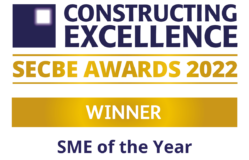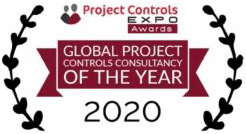What is Project Controls?
Introduction
This blog will be a short snapshot into the basics of project controls within the construction industry, giving readers a better understanding of how project controls contribute to safe and successful project delivery. Successful projects delivery is defined as obtaining most or all time, cost, and quality objectives. Throughout this blog we will explore how project controls contribute towards obtaining this goal and how this can significantly benefit organisations, saving them time and money.
What are the core competencies of Project Controls?
Project controls refer to the people, processes, and systems used to plan, monitor, and manage all aspects of a capital project’s lifespan. Project controls encompass core competencies such as but not limited to planning & scheduling, risk, cost & change management, tender planning & bid development, business intelligence, system architecture, and PMO setup & maturity. All of which are aimed at driving projects towards safe and successful project delivery, saving them time and money.
Now that we know project controls is a multi-disciplinary field, let’s look at some of those core competencies in more detail:
- Project Planning is at the heart of any project is project planning, it informs everyone involved where you’re going and how you’re going to get there. The project planner will work closely with the project manager and his team to define the project scope, time-phased construction of these items, resulting in the creation of a project schedule. This schedule, once agreed with key stakeholders, will form the performance measurement baseline (PMB). The PMB is what the project team uses to track overall progress and performance, monitor and control changes throughout the project lifecycle.
- Cost Management is centered around planning, estimating, budgeting, and controlling project costs. Cost management is put in place to help project teams plan and control budgets during the project life cycle. Cost management overall is a detailed process but can be broken down into the following processes: Resource planning cost estimating, cost budget & cost control. All of which are deployed to control project costs, with the goal of saving projects money.
- Risk Management focuses on controlling risks by pre-planning, identifying, analysing, and responding to events on the project. The goals of risk management are to improve the likelihood and impact of positive events in the project while reducing the likelihood and impact of negative events, with the goal of saving time, money, and reputation.
- Change Management is the methodology applied, to manage scope deviations during the project lifecycle. Although project controls aim to minimise changes, some change is inevitable. How you manage this change is essential, ensuring that your project is fairly compensated. Without a robust change management process, projects can be left completing additional scope(s) of work, on their time.
- Organisational Change Management, not to be confused with change management, is a systematic approach to dealing with the transition or transformation of an organisation’s goals, processes, or technologies. The goal of Change Management is to implement strategies for effecting change, controlling change, and helping people to adapt to change. Change Management is central to achieving operational effectiveness and realising agreed benefits. Key to project controls, as the industry is constantly evolving, meaning project controllers must oversee the embedment of new processes and technology, regularly.
- Data Structure, Control & Management, is the true core of project controls and is commonly overlooked. This process involves managing and overseeing information and the processes that govern its flow, forming the basis for a fully integrated and collaborative environment. The data structure, control, and management are crucial on projects because it allows controllers to fully mature a project controls department, by knocking down data silos and harnessing the power of project data, gaining confidence in data quality, so that when the time comes, decision-makers can take decisive actions to control project time, cost, and quality outcomes.
Why is Project Controls important?
Project controls is a specialisation of project management, the key focus is on driving projects to obtain their time, cost quality objectives. The target of project controls is to keep costs and schedules as close to the original baselines as possible whilst monitoring, tracking, and reporting any variances, detecting problems early, allowing decision-makers the time and background to take decisive action. Controls essentially provide projects with a structure in which the project is managed, knockdowns data silos, foster collaboration, and unlock the intelligence of project data. When project managers are largely focused on delivery, they have less time to review data and understand deviations from the project baselines. Project controls provide project managers with a much-needed health check by providing a more data-driven perspective of how project resources and objectives are evolving. From this, they can take decisive actions to correct issues, before they pose a risk to time, cost, and quality objectives. Project controls are, in layman’s terms, using an analogy, the navigator to the project manager who is the pilot. A project controller keeps track of time, cost, and quality objectives and alerts the project team to any potential problems before they cause actual impacts. The project managers, not the controller, oversee putting these recommendations into action. Even though controls are a specialisation of project management, they still engage with more than simply the project managers whom they report to, they give the whole project structure, fostering collaboration, unlock the power of data and allow project teams to focus on taking actions, instead of processing data.
Project controls regularly engage with the following teams:
- Project/construction managers (all levels)
- Finance
- Commercial
- Procurement
- Delivery
- Technical team (Various Engineering Disciplines)
- Quality

Source:https://projectcontrolsonline.com/definition-and-importance-of-project-controls
What are the Benefits of Project Controls?
The many moving pieces in megaprojects can make it challenging to keep on track with the original goals. Close monitoring, analysis, and control, on the other hand, can keep this under check. When controls are correctly implemented, they assist projects of all sizes, not just large projects, in obtaining their time, cost, and quality objectives.
Some of the key benefits of project controls are listed below:
- Project costs kept low through the ability to make timely decisions using KPIs
- Increase outcome certainty
- Increased project predictability for cost and deadlines
- Provides better insight into the financial health of the project at all stages
- Capacity to mitigate project scope creep
- Meaningful benchmarking data for future projects via well-structured projects
- Increased margins when working in a fixed-price environment
- Enhanced reputation for accurately managing and controlling projects
Conclusion
In closing, it is commonly acknowledged that lack of project controls, is a key contributor to project failures. Despite the ongoing evolution in the field of project management, it appears that the traditional method still lacks the use of Project Controls, and various publications have been written to demonstrate the relevance of control in achieving project objectives.
If you are interested in hearing more, you can watch the latest webinar on this topic ‘Project Controls: More Than Just a Reporting Function‘ here.
If you’d like any help unleashing the full potential of your project controls department, get in touch!
You can email us at info@logikalprojects.com
or call on +44 (0)20 7404 4826 (UK & Europe) or +61 1300 564 452 (APAC)
Or you can use the Contact Us form here.





